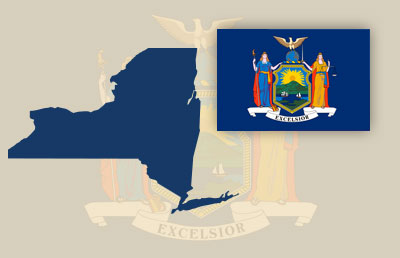New York Modifies Foreclosure Provisions Regarding Reverse Mortgages

The state of New York modified its Real Property Actions and Proceedings Law and Civil Practice Law and Rules relating to foreclosure upon a reverse mortgage. The provisions regarding reverse mortgage loans, including a new disclosure and defining a reverse mortgage as a home loan, become effective immediately and are deemed to have been in full force and effect on and after April 20, 2017.
The amendment provides that a home loan shall include a loan secured by a reverse mortgage if the following requirements are met:
- The borrower is a natural person;
- The debt is incurred by the borrower primarily for personal, family or household purposes;
- The loan is secured by a mortgage or deed of trust on real estate improved by one to four family dwelling or a condominium unit used or occupied, or intended to be used or occupied wholly or partly, as the home or residence of one or more persons and which is or will be occupied by the borrower as the borrower’s principal dwelling; and the property is located in the state of New York.
The amendment stipulates that a residential foreclosure action involving a high-cost home loan or a subprime or nontraditional home loan, where the court holds a mandatory conference within sixty days after the date when proof of service is filed with the county clerk for the purpose of holding settlement discussions pertaining to the relative rights and obligations of the parties under the mortgage loan documents, shall not apply to a home loan secured by a reverse mortgage where the default was triggered by the death of the last surviving borrower unless:
- “[T]he last surviving borrower’s spouse, if any, is a resident of the property subject to foreclosure; or”
- “[T]he last surviving borrower’s successor in interest, who, by bequest or through intestacy, owns, or has a claim to the ownership of the property subject to foreclosure, and who was a resident of such property at the time of the death of such last surviving borrower.”
The amendment also requires a notice be provided to the borrower prior to commencement of legal action, including foreclosure. The notice must be provided at least ninety days prior to commencement of legal action and be in the format of and include the information as provided in Section 1304.
https://www.nysenate.gov/legislation/bills/2017/a9508
Rhona Kyeyune, LLM, is a regulatory compliance consultant with CLA. She is a graduate of Makerere University and earned her master of laws at Boston University School of Law.

Comments are closed.